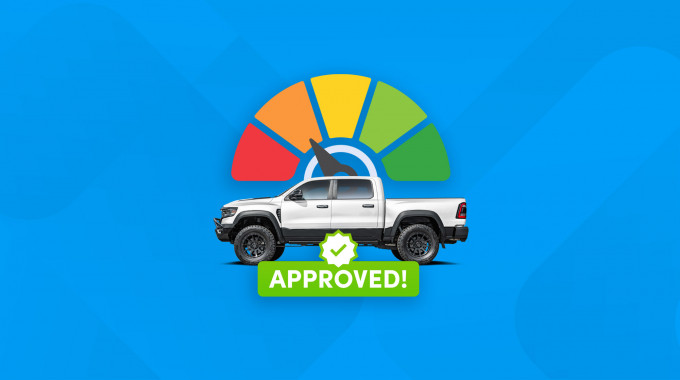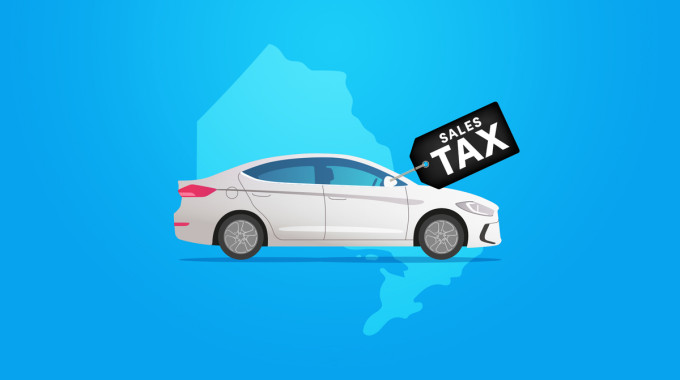
Nov 21, 2025
What Is MSRP? Why It’s Important to Know Before Buying a Car
Most of the time when we buy something at a store, we know what that item will cost: the price on the tag plus any applicable sales taxes.
But the automotive industry has an unfortunate reputation for advertising a price for a new vehicle and then adding fees that can inflate the purchase price by thousands of dollars.
In recent years, some provincial governments have introduced regulations requiring car manufacturers and their dealers to advertise “all-in” pricing that gives consumers a better idea of a vehicle’s true purchase price.
Still, some unscrupulous car dealers may try to charge you extra by installing accessories you didn’t ask for, or by inflating legitimate fees for registering and licensing the vehicle in your name.
With some basic knowledge about how car pricing works and what MSRP represents, you’ll be able to negotiate your next car or truck purchase with confidence, knowing you’re getting what you paid for at a fair price, without paying too much. If selling or trading in your current vehicle, here's how to know what your vehicle is worth.
What does MSRP mean & how does it differ from base price?
MSRP is an abbreviation for “manufacturer’s suggested retail price” – the price the automaker suggests its dealers ask for the vehicle in question. Automakers determine this suggested price by factoring in production costs (raw materials, labor, etc.), marketing strategy, and desired profit margins, while also considering overall market demand and competition.
Because most automakers and brands sell vehicles through the traditional dealership model, the dealer acts as a third party: They buy vehicles from the manufacturer at one price, and then sell them on to consumers at the MSRP, which is higher. The idea is that the dealer makes a profit on each car it sells.
Car dealerships’ MSRP vs base price
A vehicle’s base price (or base MSRP) is the cost of the most basic version of a model, without any optional features or upgrades. If you choose a higher trim level or add extra options with more features, the MSRP will increase accordingly. For example, the base model of a car might have an MSRP of $25,000, but a fully-loaded version of the same car could have an MSRP of $30,000 or more once all the additional features are included. In other words, the MSRP for a specific vehicle equals the base price plus the cost of any factory-installed options or packages (these prices are usually listed on the manufacturer’s website).
That final MSRP is what you’ll see on the car’s window sticker (hence the term “sticker price”). It represents the manufacturer’s recommended selling price (list price) for that particular vehicle configuration. In practical terms, the MSRP serves as a starting point for your car purchase – it’s the list price that you can use as a reference, but it’s not necessarily what you will end up paying after negotiations.
Keep in mind: MSRP is a recommended starting point, not a fixed or final amount. The actual price you pay (often called the transaction price) might end up lower than MSRP if you negotiate a deal or if there are discounts and incentives, or it could even be higher than MSRP for certain high-demand vehicles when there’s limited supply. Also, MSRP itself excludes taxes and other official charges – those will be added on top of the vehicle’s price during the purchase process.
Can you negotiate the MSRP when buying a car?
Yes – not only can you try to negotiate a price lower than a vehicle’s MSRP, but you should. The MSRP is a starting point (a suggested price), and dealers generally expect some haggling. Since car dealers buy vehicles from the manufacturer at a cost lower than the MSRP, there’s usually profit margin built in. However, how much you can get the price down depends on a few key factors – like the market demand for that model, how much inventory is available (if supply is limited or the vehicle is in high demand, there may be less room for a discount), and any dealer incentives or promotions available at the time.
There is more transparency in today’s new-car transactions than there used to be, but there’s still information about a vehicle’s pricing that can be hard to come by. The invoice price is theoretically the amount the dealer paid the manufacturer for the vehicle. Dealers used to be secretive about invoice pricing, but it’s now relatively easy to find a vehicle’s invoice price online.
Tip: You can use the invoice price as a bargaining tool. For instance, if a car’s MSRP is $30,000 and its invoice price is around $28,000, a reasonable first offer might be somewhere near $28,000 (perhaps a few percent above that number) instead of simply accepting the $30,000 sticker price. Starting your negotiation closer to the invoice amount can help ensure you’re working toward a fair price while still leaving the dealer a small profit.
In reality, there’s an even lower dealer cost per vehicle on which the store bases their side of the negotiation. It often incorporates what the industry calls a holdback, which cuts a couple of percent off the invoice price to help the dealer cover the costs of doing business, like sales commissions, employee salaries, and other operational costs.
A dealer’s invoice price is always negotiable
Sometimes, the manufacturer offers its dealers rebates to lower the price of less-popular models, and there are often dealer incentives for dealerships that meet certain sales targets. Alone or in combination, those manufacturer-to-dealer discounts can add up to a dealer’s true cost per vehicle that is, in some cases, thousands of dollars less than the invoice price – never mind the MSRP.
Additionally, manufacturers often run promotions or offer incentives directly to consumers. These can include cashback rebates, loyalty bonuses, or special low-interest financing deals that effectively reduce the vehicle’s cost or the cost of borrowing. Be sure to factor in any such offers when evaluating a deal, as they can make a big difference and help you achieve a fair price overall.
So even if you know a car’s invoice price, the dealer may be willing to sell you a vehicle for less than that amount – which is why you should always negotiate.
Also, the profit margin is typically larger on more expensive vehicles, so you may not be able to score as significant a discount on a compact economy car as you would on a large SUV or a luxury SUV model.
In general, securing a price even a few percent below MSRP is a win for you as a buyer. For example, on a $30,000 vehicle, a 5% discount off MSRP would save you about $1,500. The exact discount you can achieve will vary by model and market conditions. On a slow-selling model (or one with generous incentives from the dealer/manufacturer), you might negotiate thousands of dollars under MSRP. But on high-demand vehicles (or during times of limited supply), you might only get a small price break – or no discount at all – relative to MSRP. The key is to do your research and negotiate to get the best price possible for the vehicle you want.
Can a dealer sell a car for more than the MSRP?
Yes, they can. Typically, this happens with particularly desirable, high-demand vehicles produced in limited numbers, or with a new model that the manufacturer has promoted for months or even years prior to its market launch to build up demand.
In recent years, it has become more common for vehicles to sell for over MSRP thanks to pandemic-related supply chain disruptions. Shortages of semiconductor chips and other components have limited production for many manufacturers, leading to fewer cars on dealer lots. The resulting limited supply, combined with strong demand, means there’s more competition for the cars and trucks that do make it to dealerships. That extra demand (and lack of inventory) can make it very difficult to negotiate a selling price at or below MSRP. In some cases, if you don’t buy a car at the price the dealer is asking, they know someone else probably will.
For these above-MSRP situations, the dealer will still display the official MSRP on the window sticker, but they may attach an additional label or addendum with a “market adjustment” markup or extra fees to reach a higher asking price. In other words, they’re adding a markup on top of the original MSRP due to market conditions. This is how a dealership effectively charges more than the sticker price when a model is in extremely high demand.
Dealers make money on other services & extended warranties
However, dealers have revenue streams other than the profit they make off the sale of a new vehicle. Dealerships also make money from the sale of extended warranties, anti-theft alarms, nitrogen-filled tires, prepaid maintenance packages, wheel locks, and rustproofing, to name a few common items.
These are legitimate add-ons, but only if you ask for them or agree to purchase them at the dealer’s suggestion.
Always check dealer invoice for hidden fees & unwanted car add-ons
After you and the dealer have agreed on a price for a vehicle equipped as you want it, look over the invoice carefully before you sign to make sure the dealer hasn’t added any extras you didn’t ask for. If you decide that you do want any extras the dealer is suggesting, double-check that you’re getting what you pay for. For example, you should get official paperwork for an extended warranty, and verify that any physical add-ons (like accessories or protections) are actually installed before you drive the car away.
Remember that you can often get a better deal on some of these items from third-party retailers or specialty shops. When you purchase these extras through a dealer, you’ll usually pay more for the convenience of having them included at delivery.
If you need to finance the cost of your vehicle, there’s nothing wrong with arranging financing through the dealer – but know that they usually make money through that, too (often by marking up the loan’s interest rate or receiving a commission from the lender). If you’re not sure whether to pay cash or finance, read our helpful resource: Buying a Car: Should You Pay Cash or Finance?
Should you pay MSRP for a new car?
In general, you should try not to pay the full MSRP when buying a new vehicle. Remember, the MSRP (sticker price) is the manufacturer’s suggested price, and it’s often possible to get a better deal. Most buyers typically pay less than MSRP in practice, since dealerships frequently agree to some discount off the suggested price to close the sale. In a normal market, competition between dealers and various incentives will usually drive the actual transaction price a bit below the MSRP for many models.
However, there are situations where paying MSRP might be reasonable or even expected. If a car is extremely popular or in short supply, the dealer may hold firm on the sticker price. For example, during periods of limited supply or for high demand models (like a hot new release or a limited-edition vehicle), you might find that no dealer is willing to budge below the MSRP. In such cases, paying MSRP could be considered a fair price because the vehicle’s market value at that moment is at or near MSRP – essentially, if all dealerships are charging MSRP due to market conditions, then MSRP is the going rate. If you don’t buy it at that price, someone else likely will.
On the other hand, it’s rarely a good idea to pay above MSRP. Paying more than the manufacturer’s suggested price means you’re likely not getting a great deal. Unless it’s a very special or rare vehicle that you absolutely must have (and you’re willing to pay a premium for it), it’s usually wiser to avoid any markup over MSRP. If a dealer is asking well above MSRP, you may want to consider waiting until inventory improves or looking at alternative vehicles, to ensure you’re not overpaying.
What other fees can you expect to pay when buying a car from a dealer?
When you’re buying a car from a dealership, keep in mind that the MSRP (or even your negotiated price) isn’t the only cost to consider. There are several additional fees and charges added on top of the car’s price before you can drive away. These extra costs include mandatory expenses like sales taxes (MSRP excludes taxes) and government registration/licensing fees, as well as dealership fees for things like freight and PDI, documentation, etc. Here’s a breakdown of the common fees to expect on a new car purchase:
Freight/destination and PDI (pre-delivery inspection) charges
The most common dealer fees that have traditionally not been included in the MSRP are freight/destination and PDI (pre-delivery inspection) charges. The freight charge (sometimes called the destination fee) covers the cost of transporting the vehicle from the factory to the dealer. It is set by the manufacturer so that every consumer pays the same amount, no matter how far their dealership is from the factory. In short, freight and PDI fees are not part of the MSRP – they are listed separately and added on top of the vehicle’s sticker price.
When you sit down with the salesperson to discuss the price you’ll pay for your new car or truck, you may see line items on the invoice for PDI and/or “admin.” PDI stands for pre-delivery inspection – the standard term for preparing the car for delivery to you – and it can involve tasks like mechanically inspecting the car, removing protective plastic, and washing the vehicle so it’s showroom-ready.
You should ask the salesperson what is covered by the PDI fee. If you feel like they’re overcharging for PDI, ask if they’ll reduce the fee or remove it from the invoice altogether.
Dealer administration or documentation fees
The dealer will probably also add an administration or documentation fee for handling the paperwork, such as registering the ownership in your name and putting licence plates on the car. These are legitimate charges, but make sure the dealer isn’t overcharging you for them. The key is that they should be up front with you about all fees – you don’t want them trying to quietly add these after you’ve negotiated what you thought was the final price.
Check the car manufacturer’s website for provincial MSRP and included charges
Some – but not all – Canadian provinces and territories require automakers to include the freight/destination charge when they advertise an MSRP. (This is often referred to as all-in pricing.) You can see exactly which fees are included by visiting the manufacturer’s website and selecting your province/territory of residence. Some manufacturers also cap how much their dealers can charge for administration and/or documentation fees, to prevent gouging.
Summary: The table below shows what is typically included in the MSRP and what costs are additional, added on top of MSRP, when calculating the final out-the-door price of a new car:
|
Item |
Included in MSRP? |
|
|
Base vehicle (standard equipment) |
Yes – The MSRP covers the base cost of the vehicle itself, including all standard features in the base model. |
|
|
Factory-installed options/upgrades |
Yes – Any optional packages or features added from the factory are reflected in the MSRP (they raise the MSRP accordingly for that vehicle). |
|
|
Freight/Destination fee |
No – This charge for shipping the car from the factory to the dealership is listed separately and added on top of the MSRP. |
|
|
PDI (Pre-Delivery Inspection) |
No – This is a dealer fee for preparing the car for delivery (inspection, cleaning, etc.) and is not part of the MSRP. |
|
|
Sales taxes (GST/PST/HST) |
No – MSRP excludes taxes. Applicable taxes are calculated on the final sale price and added at the time of purchase. |
|
|
Registration/licensing fees |
No – Government fees for vehicle registration and license plates are extra; they are not included in the MSRP. |
|
|
Dealer documentation/administration fee |
No – This is an administrative fee charged by the dealer for paperwork; it’s additional to the MSRP (some regions cap how much can be charged). |
|
|
Dealer add-ons (accessories, warranties, etc.) |
No – Any extra products or services the dealer sells (extended warranties, protection packages, accessories, etc.) will cost extra beyond the MSRP. |
How does Canada Drives simplify the car buying process?
Canada Drives is on your side and aims to make the process of buying your next vehicle as painless as possible.
Get pre-approved in minutes
Shop with confidence knowing exactly what your budget is with a pre-approval.
Get pre-approved here – we'll connect you with a dealer partner in your area who will show you vehicles you qualify for. Just pick the one you want and drive away. No stressful negotiations or fear of rejection in the finance office!
Sell your car directly to Canada Drives
If you have a vehicle you want to trade in or sell, you can get an instant offer online.
Quickly enter your car info here – if you like your offer, simply drop off your vehicle at a convenient Canada Drives location and get paid!
Frequently Asked Questions about MSRP
Does MSRP include freight and PDI?
No. The MSRP (manufacturer’s suggested price) typically does not include the freight charge (destination fee) or the pre-delivery inspection fee. These costs are listed as separate line items added on top of the MSRP when you purchase a vehicle. In other words, the sticker price you see on the car doesn’t account for freight and PDI – they’re extra charges you pay in addition to the MSRP.
Should you pay MSRP for a new car?
As a buyer, you should try to avoid paying the full MSRP if possible. MSRP is a suggested price, and usually there is room to negotiate a lower price (especially if the vehicle isn’t in high demand). Paying the full MSRP might be okay if the car is extremely popular or supply is very limited (meaning the dealer won’t budge on price due to market demand). But under normal circumstances, you should aim to pay below MSRP by negotiating to get a fair deal. In short, MSRP is a starting point – try to get the final price down if you can.
Does MSRP include tax?
No, MSRP does not include any sales taxes. Taxes (GST, PST, HST, or applicable sales tax) are calculated on the final sale price and added when you finalize the purchase. So if a car’s MSRP is $30,000, you will pay taxes on top of that amount. Always remember that the MSRP excludes taxes – the price tag you see doesn’t have tax included.
Can you negotiate MSRP on a new car?
Yes, absolutely. The MSRP is just the suggested price (often called the sticker price or list price), and you can negotiate the actual selling price of a new car. In fact, dealers expect some negotiation. How much you can negotiate off the MSRP will depend on factors like the vehicle’s popularity, market conditions (supply and demand), and whether there are any incentives or discounts available. Many buyers are able to purchase a new car for below MSRP through negotiation. It’s always a good idea to try – you could end up saving hundreds or even thousands of dollars off the sticker price.
Is the destination fee included in MSRP?
No. The destination fee (which is the same as the freight charge) is not included in the MSRP. This fee is set by the manufacturer to cover shipping the car from the factory to the dealership, and it’s always listed separately. You will pay the destination/freight charge in addition to the vehicle’s MSRP. On the window sticker, you’ll typically see the base MSRP plus any options, then a line for “Freight” or “Destination” which is added to reach the final price.
How much below MSRP should I pay?
It depends on the vehicle and the market, but generally the more below MSRP, the better for you. A common strategy is to aim for at least a few percent below MSRP. For example, getting say 5% off MSRP (perhaps $1,500 off a $30,000 car) would be a pretty good deal in many cases. In a buyer’s market with lots of dealer stock or dealer incentives, you might negotiate 5-10% below MSRP on some models. On the other hand, for high-demand models or in a tight supply market, you might only get a small discount (or none at all). Do some research on the car’s invoice price and see what others are paying (the market average) – that will give you an idea of how much below MSRP is realistic. The key is to negotiate and compare offers to ensure you’re paying as little above the dealer’s cost as possible. In summary, there’s no fixed number, but any amount below MSRP means you’re getting a better deal than paying full sticker price.







